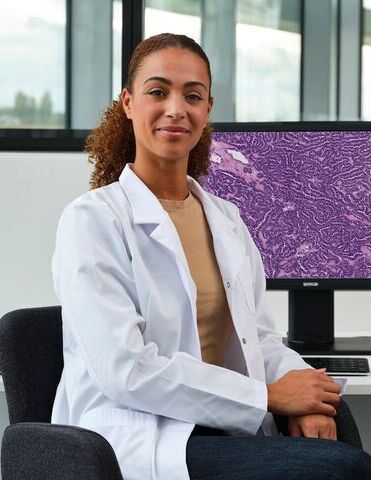The changing face of the modern hospital
Sponsored by Advantech
Ard Schalkwijk, Sales Manager – iHealthcare Europe, Advantech
The typical hospital in a decade’s time is set to bear little resemblance to what we might expect to see today.
Key to this will be the role of technology in automating many aspects of healthcare management which are today highly onerous for healthcare professionals.
In the UK, for example, only around one third of nursing time is actually spent on patient care, with the rest devoted to administration and information provision, both internally and externally.
However, advances in technology will bring far greater efficiency and quality all aspects of hospital operations.
Hospital entrances, for example, can be equipped with crowd analysis and thermal screening technologies to immediately detect any signs of infection among patients or visitors. Automated self-service kiosks will mean patients can effectively triage themselves, freeing up many hours of time each day in busy wards. Tele-health solutions will allow remote consultation with specialists and even remote examination of problematic body parts. Radiologists will be able to analyse many x-rays in a matter of a few seconds and come up with appropriate diagnoses. Video data management systems will allow a supervising surgeon located anywhere in the world to oversee a team performing an operation.
Digital medical dispensing processes can reduce inefficient paper trails with their risk of potentially fatal human error. One such system in Canada has cut failure rates from around 3 per cent to just 0.007 per cent. Various configurations are possible but one example would be a mobile drug dispensing unit wheeled around a ward by a nurse – on scanning a barcode on the patient’s wrist, a locker would pop open containing the correct type and quantity of prescribed medicine.
Wearable technology will also allow any medical issues to be automatically identified far earlier, with appropriate action able to be advised and implemented.
Common to all of these advances will be the role of technology solutions, co-created by Advantech and its global partner network, certificated to internationally recognised medical standards. Hospitals will become less centres for treatment, more command and communications centres, with people only attending in person where there is no other alternative.
All of this will help address two of the key issues currently affecting the healthcare sector in many parts of Europe – a shortage of high-calibre staff and a shortage of available equipment.
Perhaps more importantly, it will free up capacity and ensure beds are available for seriously ill patients, in the event of another pandemic like Covid-19.
Click here to get in touch and learn more about Advantech’s intelligent healthcare solutions.

Business Reporter Team
Related Articles
Most Viewed
Winston House, 3rd Floor, Units 306-309, 2-4 Dollis Park, London, N3 1HF
23-29 Hendon Lane, London, N3 1RT
020 8349 4363
© 2025, Lyonsdown Limited. Business Reporter® is a registered trademark of Lyonsdown Ltd. VAT registration number: 830519543





